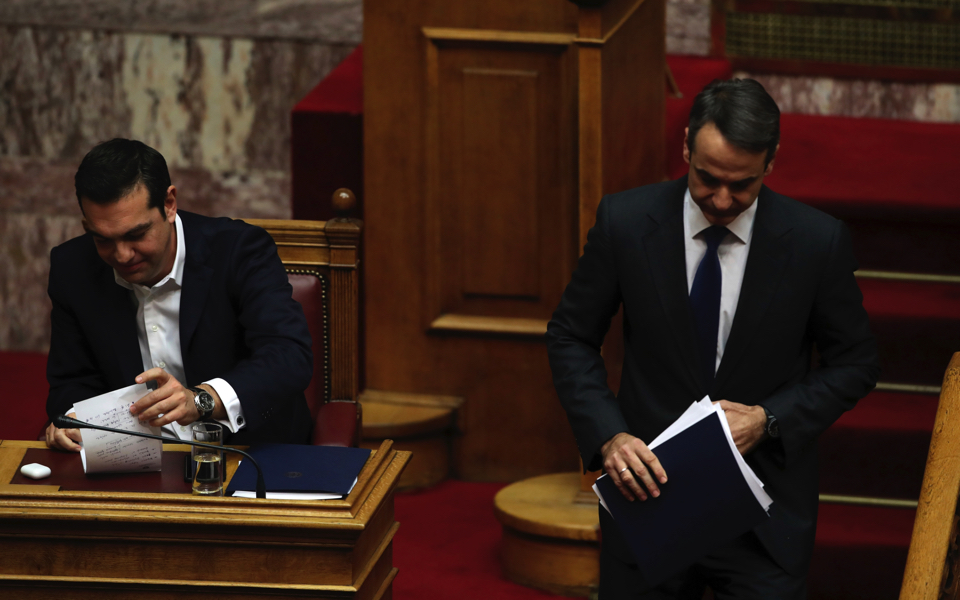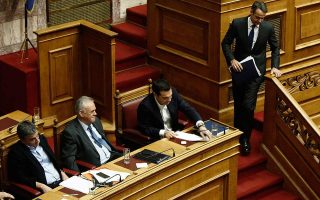Lenders wary of handouts after budget approval

Parliament approved the 2018 budget on Tuesday night following a clash between Prime Minister Alexis Tsipras and New Democracy chief Kyriakos Mitsotakis and amid concern on the part of Greece’s lenders about the handouts that the government has announced over the last few days.
The result of the ballot saw 153 coalition lawmakers vote in favor of the economic plan and 144 opposition MPs against.
Tsipras hailed the budget as the last that Greece would have to execute while under an adjustment program. The SYRIZA leader argued that the country is already on the road to economic recovery and that this would continue next year.
“This year is the first with real growth after many years of recession,” he told Parliament, arguing that his government is leading the country to a stronger recovery than the New Democracy-led government in 2014.
“We took over a country with empty coffers, with unemployment close to 27 percent, with zero trust among its partners and the international markets, and with the 10-year bond yield at almost 8 percent,” he said.
Mitsotakis described the budget, which introduces almost 2 billion euros in new fiscal measures, as “unjust” and said it would undermine Greece’s growth prospects. He also labeled the government’s assertion that Greece would be exiting its bailout next year as “Mr Tsipras’s new big lie.” He argued that the coalition had already committed Greece to a fourth program.
“We will only have a clean exit from the memorandum when we do what Cyprus, Ireland and Portugal did when they left their programs without preapproved measures, without suffocating surveillance and without a commitment to achieve exhausting surpluses,” said the conservative chief.
Mitsotakis also accused the government of beating this year’s primary surplus target through high taxes, confiscations and the reduction in social and investment spending, rather than from the economy beating expectations.
“Why do we have to produce larger surpluses than those demanded by our creditors?” asked Mitsotakis, who accused the government of intentionally beating fiscal targets so that it could engage it handouts, “copying the worst clientelistic methods” of the past.
Apart from the social dividend, which has resulted in just over 1.3 million applicants receiving a total of almost 730 million euros, the government also announced plans over the last few days to make a one-off payment of 400 euros to unemployed Greeks aged between 18 and 24 and to provide 650 euros each to any residents of Mandra in western Attica who have been unable to return to work following the recent deadly flooding in the area.
The Finance Ministry also announced on Tuesday that plans to scrap the 30 percent reduction on value-added tax that applies to numerous Aegean islands would be held off for another six months in places that are at the forefront of the refugee flows: Lesvos, Chios, Samos, Kos and Leros.
It is not clear if this change to the plan regarding the VAT hike on islands has been approved by Greece’s lenders. Sources also suggested that the institutions are concerned by the scheme for the young unemployed. Although the total amount involved is relatively small at 20 million euros, the lenders are upset there is no provision for the handout to be means-tested, which could lead to young Greeks from well-off households receiving the benefit.
Sources also said the International Monetary Fund is particularly annoyed by the government’s policy of handouts and that the issue is due to be raised at a meeting of the IMF’s executive board in February. There is a feeling in the IMF that the European lenders are not being tough enough with Greece.





